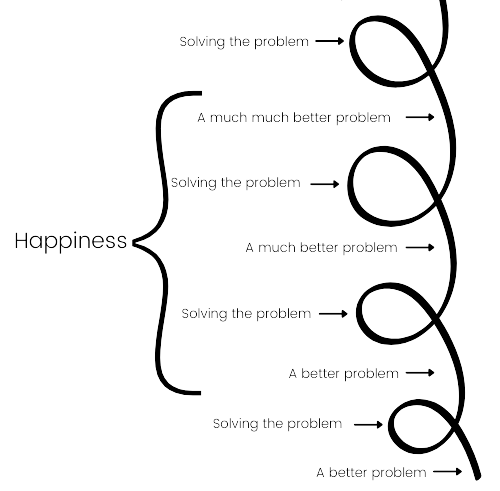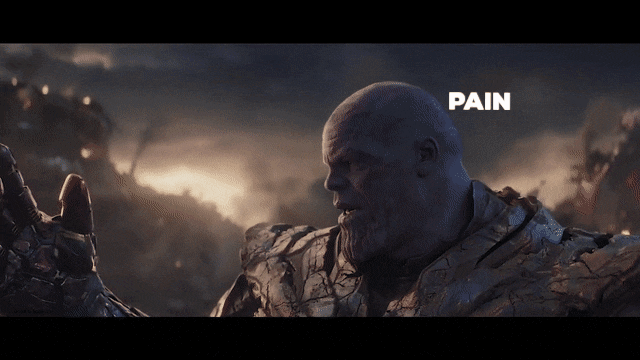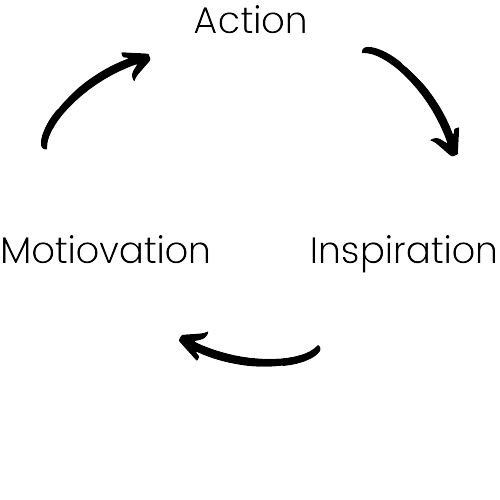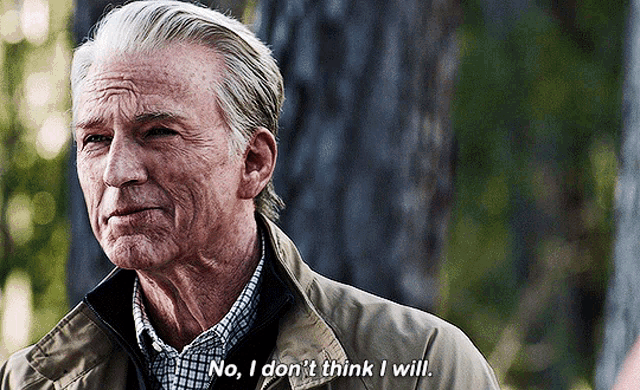In a few sentences
This book explores ideas on how to be consistently happy. It challenges our beliefs, values, and metrics for success in life. It teaches the nature of problems in life and how solving them constantly is the key to a fulfilled life.
Main ideas
- We only have a few fucks to give in life, we better reserve them for the important stuff.
- Taking responsibility for everything in our life gives us more power to control how things turn out.
- Problems in life never stop, they only get upgraded.
- Happiness comes from constantly solving problems.
- The fact our life is finite gives meaning to our life.
Who should read it
This book is not for everyone, I think the concepts presented in this book may be appealing to everyone. But the way they are presented isn’t. If you are curious about a different approach to life this book is for you, and it can be very beneficial for you.
TAKE ACTION!
Start questioning your beliefs, we all believe what we know is true and right, but our mind constantly makes assumptions and judgments. We can’t always be right, we can only start to be less wrong.
Start with “why?” And go to the bottom, do it with your emotions, beliefs, and metrics for life.
The summery
“Chapter 1: Don’t Try”
Our culture is focused on unrealistic positive expectations from life. Be happier, be more beautiful, be the best, be extraordinary. And when you think about it, all the life advice you get is focused on what you lack. All your shortcomings.
When you stand and say affirmations to yourself, you say I am successful because you feel you are not successful enough. When you only focus on the better things you Currently don’t have, you just constantly remind yourself what you failed to achieve.
“The Feedback Loop From Hell”
Imagine this, you get angry about something, then you get angry at yourself for being so angry. At the end of it, you don’t even know why you were angry in the first place. This is called “The feedback loop”
Today, this loop is much more dangerous. To see how much of a “failure” you are, you just need to open any social media. Everyone is pretty, happy, going on adventures and “living your dream”. Behind the filters, the 1 out of 1000 pictures, and all the lies we see on social media, there are normal people, who aren’t that pretty or happy.
In an earlier time when grandpa felt bad, he wasn’t bombarded with millions of images showing how wrong it is to feel bad.
Today, the whole world is connected, and there are infinite ways to be inadequate.
The desire for positive experience is a negative experience. Accepting a negative experience is a positive one. This is called the “Backward law” The more you pursue feeling better all the time, the less satisfied you become. This law also means that pursuing negative experience generate a positive one. The pain in the gym results in better health, failure in business leads to a better understanding of it. Suffering generates positive things.
Avoiding suffering is suffering. Pain is essential and trying to tear it out is impossible and destructive. Trying to avoid it, is just giving way to many fucks about it. But if you don’t give a fuck about pain, you become unstoppable.
A lot of us give too many fucks about the wrong things, the store clerk, the gas prices, and other insignificant things. If you go around giving a fuck about just anything, you will be left without any fucks to give about the important things.

“The Subtle Art Of Not Giving a Fuck”
You have to give a fuck about something. So the question is: What do we give a fuck about? What are you choosing to give a fuck about? And how to not give a fuck on things that don’t matter?
The point is, you need to find the sh*t you enjoy dealing with, the problems you give a fuck about over the unimportant things.
If you find yourself giving too many fucks about trivial shit, it means you probably don’t have much going on with your life. You need to find something worth your time, and energy. Finding it is a very meaningful use of your time.
As you grow older you become more selective with your fucks. Your energy level drops, and we accept most of our parts, even the ones we like less. We can now reserve our energy for the important stuff. And that can make us happy consistently.
“So Mark, What the fuck is the point of this book anyway?”
This book will help you choose what to what should you invest your fucks in. It will turn your pain into a tool, your problems to slightly better problems.
You can think of it as a guild to suffering, how to do it better, and with more compassion.
“Chapter 2: Happiness Is a Problem”
Life is a form of suffering, the rich have problems from their riches, poor people suffer from their poverty. But not all suffering is equal. Some forms of suffering are much better than others.
Warren buffet’s money problems are much better than a homeless person’s, but they are still problems.
Happiness is not a solvable equation, pain and suffering are necessary components to happiness. We suffer because it is biologically useful, it’s nature’s agent for inspiring change. Our pain is not a bug in the system, it is a feature.Pain can teach us what’s bad for us and it is necessary for growth. A society that coddles you to feel good all the time prevents you from receiving healthy doses of pain. It disconnects us from reality. Don’t hope for a life without problems, but a life with good problems.
“Happiness Comes Form Solving Problems”
Problems never stop, they only get upgraded. Happiness comes from solving the problems. It is a constant work-in-progress. And for true happiness, you need to find the problems you enjoy having and solving.
Two ways to fuck up this simple concept:
- Denial: Acting as if your problems don’t exist, and distracting yourself from reality.
- Victim mentality: Believing your problems aren’t solvable and blaming others for them.
We all have ways of numbing our problems, in moderate doses it’s okay, but the longer we avoid the problem the more painful it will be when we finally confront it.
“Emotions Are Overrated”
Emotions are biological feedbacks from your surroundings, nudging you to a beneficial change.
If you feel bad, it’s your brain saying there is something unresolved. It’s a call to action.
Positive emotions are feedback for doing the right action, but they eventually go away, because more problems emerge.
Emotions are part of the equation of life, but not the entire equation. When something feels good it doesn’t always mean it’s good. The same goes for negative emotions. Your emotions are suggestions, not commandments, and you should make a habit of questioning them.
Everything comes with a sacrifice. Whatever makes us happy will also make us suffer. There is no ultimate happiness, we will always suffer, your dream job is the one you will stress about.
‘Choose Your Struggle”
“What do you want to enjoy?” is a very easy question to answer, try thinking what are you willing to struggle for in life? This question defines how our life will turn out much more.
A real meaningful, and fulfilled life is achieved through managing our struggles. Our struggles defined who we are. The people who enjoy the pain in the gym are the ones who run marathons.
Our problems determine our success, they give us happiness and slightly better and better problems. It’s an upwards spiral, and the joy is the climb.

“Chapter 3: You Are Not Special”
“Things Fall Apart”
When a traumatic event happens to us, we unconsciously feel we have a problem we can’t solve. Then, our mind figures were either special or defective, that we are unlike anyone else, therefore we deserve special treatment. We become entitled.
The deeper the pain the more we feel helpless against our problems, the more entitlement we adopt. This can happen in two ways:
- I’m awesome and everyone sucks, therefore I deserve special treatment.
- I suck and everyone is awesome, therefore I deserve special treatment.
You are not special, every problem you have millions of people also had or going to have. The first step to solving your problems is the realization that your problems are not privileged in their severity or pain.
“Chapter 4: The Value Of Suffering”
People dedicate their lives to seemingly useless causes, but to those people, their suffering meant something. If suffering is inevitable. then we shouldn’t try to avoid it, but to ask ourselves “What am I Suffering for?”

“The Self-Awareness Onion”
There are multiple layers of awareness, the more you peel, the more likely you are to start crying.
The first layer is understanding one’s own emotions. Often we are taught that some emotions are inappropriate when growing up. These are the ones we usually fail to understand. Our blind spot.
The second layer is the ability to ask why we felt a certain way. These questions show us what we consider good or bad, what we value. When we understand the root cause of emotion we know better how we can change it.
The third level is our personal values. Why do we consider something to be success/failure. This level is the most difficult to reach. But it is the most important one. It determines the nature of our problems.
To start peeling the onion, you need to start questioning yourself with a never-ending “why?”’ until you reach the bottom.
“Rock Star Problems”
We instinctually value and measure ourselves against others. So the question is by what standard do we measure ourselves. Our values determine by which metrics we measure ourselves and everyone around us.
If you want to change how you see your problems you need to change how you measure success. Not all values and metrics are created equal, we can easily see that some lead to better problems, and some lead to bad problems that are not regularly solved.
“Shitty Values”
- Pleasure: Pleasure feels good, but it’s a horrible value to live your life around, Just ask any drug addict or adulterer that shattered his family. People think pleasure is the cause of happiness, but it is actually the result of it.
- Material success: Research shows that once one can provide basic physical needs, the correlation between more riches to happiness evaporates.
- Always being right: We are constantly making mistakes and wrong judgments, you can only strive to be less wrong. We are human, and that’s okay.
- Staying positive: Negative emotions are important to our mental health. But the key is to express them in a socially acceptable way, and in a way that aligns with your values.
The point is you need to find some good values and metrics, pleasure and success will be the result of sticking to them.
“Defining Good and Ban Values”
Good values are
- Reality-based
- Socially constructive
- Immediate and controllable
Bad values are
- Superstitious
- Socially destructive
- Not immediate and controllable
Good values: honesty, innovation, vulnerability, standing up for yourself, self-respect, charity. Humility, creativity.
Bad values: Dominance through manipulation or violence, feeling good all the time, popularity, being rich just for the sake of it, sacrificing animals to pagan gods.
Good values are achieved internally, the bad ones are external. You need to prioritize your values. everyone want a giant house on the beach, but will this value will affect your choices more than honesty, responsibility, and innovation?
When we have poor values, we are giving fucks about things that make our life worse, when we choose better values we give a fuck about something that will improve our happiness. This is what self-improvement is about, choosing better values.
“Chapter 5: You Are Always Choosing”
The difference between a problem being painful or powerful is if we chose it or not. When we choose our problems we are much more inclined to solve them. When problems are forced upon us, we feel victimized.
“The Choice”
We don’t control everything that happens to us, but we control how we respond to it. Choosing by what we measure the things that happen to us affects the way we respond to events in our lives.
“The Responsibility/Fault Fallacy”
The more responsibility we accept in our lives, the more power we have over our problems.
Responsibility and fault are not the same. You will have many problems in your life that aren’t your fault, but you are responsible for them.
It’s easy to take responsibility for success and happiness, but taking responsibility for our problems is much more important. That is where we learn.
“Chapter 6: You’re Wrong About Everything (But So Am I)”
Growth is an endless process. When you learn something new, it doesn’t mean you now have all the answers. You just go from being wrong to being slightly less wrong.
Being certain is easy, sticking to something you believed your whole life, is easy. But you must question it, test it. Being certain is the enemy of growth. Instead of striving to be certain, strive to doubt your beliefs.
“The Dangers of Pure Certainty”
Certainty is unattainable, the more you strive for it, the more you realize you know nothing. Just like the backward law. The more you embrace not knowing, the more you feel comfortable with it. Being uncertain is the root for growth, you must be open to it.
“Manson’s Law of Avoidance”
When something threatens your identity you try to avoid it. This is why people avoid success and failure, it threatens their beliefs. We like to protect our values and live up to them. If you are a “nice guy” you will avoid situations where you contradict this belief.
“Kill Yourself”
Free yourself from the stories you tell yourself. When one does this it will free you to act and grow. When someone admits to herself: “maybe i”m not so good at relationships” she feels free to act and end her marriage.
If the story you tell yourself is very specific and not broad, everything is going to threaten you. Stick to simple things, a student, a partner, a friend. Leave the grandiose ideas aside.
“How to Be a Little Less Certain of Yourself”
A line of questioning to be less sure in yourself:
“Question #1: What if I’m wrong?”
“Question #2: What would it mean if I were wrong?”
“Question #3: Would being wrong create a better or a worse problem than my current problem, for both myself and others?”
“Chapter 7: Failure Is the Way Forward”
“Pain Is Part of the Process”
Many of our proudest achievements come from the hardest pains we endured. Our pain makes us stronger. Just like you build muscle from physical pain, You build mental resilience from emotional pain.
When choosing a new value, a huge amount of pain is bound to follow. Some people can’t handle it and want to get back to feeling good, they give up. You need to savor the pain, to welcome it.
“The Do something Principle”
Action isn’t the effect of motivation it is also the cause of it. If you lack motivation you just have to “do something” to motivate yourself, and if “doing something is a metric for success, then even failure is progress.

“Chapter 8: The Importance of Saying No”
Freedom grants the opportunity for greater meaning, but by itself, there is nothing necessarily meaningful about it. Ultimately, the only way to achieve meaning and a sense of importance in one’s life is through a rejection of alternatives, a narrowing of freedom, a choice of commitment to one place, one belief.

”Rejection Makes Your Life Better”
There is something special in spending decades of your life on a single thing. A single relationship, a craft, or a career. To achieve that, we need to reject many things along the way, to differentiate what’s important to us and what’s not.
In order to give a fuck about X you need to not give a fuck about Y, you need to reject it.
“Freedom Through Commitment”
More is not always better. The more choices we have the less satisfied with our choices we become. Because we know what we’re missing. While having only one job may close other opportunities, it gives us the reward to enjoy the depth of the experience.
Trying everything has diminishing returns, in your 56th country, the adventure is much less exciting. Commitment allows you to focus on a few but highly important goals.
“Chapter 9: … And Then You Die”
A man who spends his life avoiding painful and uncomfortable feelings avoids life itself. Death gives our life meaning, without it, everything will become meaningless. To appreciate life even more we need to keep death in mind at all times. It makes you concentrate on the important stuff.
We are all going to die because we are fortunate enough to have lived. The more You peer into the darkness, the more light your world becomes.


